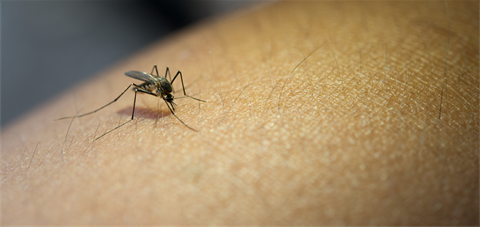Mosquito Management

Council has adopted a Mosquito Management Plan to provide an integrated approach for the management of mosquitos and reduce mosquito-bourne disease risk. Mosquitoes are a natural part of the Australian environment and are a food source for many native animals.
Relevant statutory requirements and the environmental amenity of the region are to be considered when undertaking mosquito management.
Consider installing insect screens on your house, avoid being outside during mosquito feeding time, usually at dusk and dawn, use a quality insect repellent and wear long clothing where possible.
View our Mosquito Fact Sheet(PDF, 1MB)
Mosquito Management Plan 2023(PDF, 464KB)
Mosquito Facts
Over 220 species of mosquitoes have been identified in Queensland but only a small number are of major concern. The main mosquitoes of concern in Western Downs are the:
- Culex quinquefasciatus - brown house mosquito
- Aedes alternans - the Scoth grey mosquito
- Aedes notoscriptus - domestic container mosquito
- Aedes vittiger - greystriped mosquito
- Aedes aegypti - the Australian dengue mosquito (not currently here and we don't want this one)
Mosquito borne disease of concern for the Western Downs region include Dengue Fever, Ross River Virus, and Barmah Forest Virus in humans, and heart worm in dogs.
A guide to personal protection strategies against Australian mosquitoes(PDF, 2MB)
Breeding Sites
Numerous breeding sites within the region contribute to mosquito populations. Responsibility of mosquito breeding and harborage sites is everyone's responsibility and usually rests with the owner of the land where the breeding or harborage occurs.
Council is responsible for management of breeding sites on Council controlled land such as our parks, gardens, facilities, roads and drainage systems. Due to the very large geographical area of the Western Downs, it will never be possible to control mosquito breeding or control adult populations, and a focus must always be on community members protecting themselves from mosquito bites.
The management of mosquitoes on private property is the responsibility of owners and residents. Backyard breeding of mosquitoes can contribute significantly to nuisance and disease risk in residential areas.
Japanese Encephalitis Risk
Japanese encephalitis (JEV) is a vectorborne disease spread to humans through infected mosquitos.
Protect yourself from being bitten by mosquitos by:
- regular application of an effective repellent on exposed skin
- wear long loose fitting clothing when outside
- using insecticide sprays, vapour dispensing units (indoors) and mosquito coils (outside)
- ensure all door, windows, vents and other entrances are screened
- remove all containers that can hold water from where mosquitos may breed